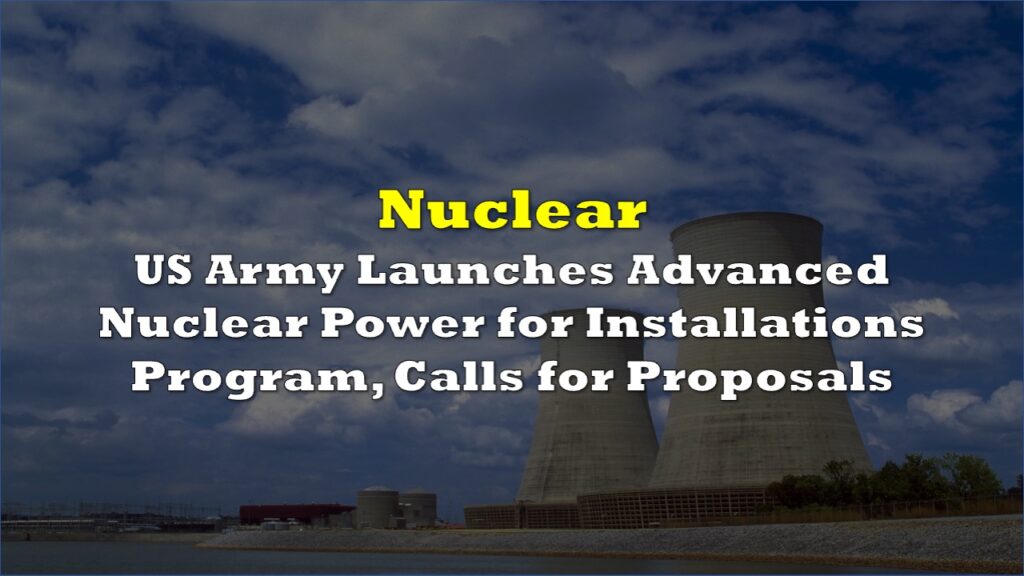The US Army launched the Janus Program to field a commercially owned-and-operated microreactor at a domestic military installation, establishing a framework to deliver energy sources for critical missions.
Announced at the Association of the US Army Annual Meeting’s Warriors Corner, the initiative positions the Army to lead next-generation nuclear power for defense installations. Energy Secretary Chris Wright joined Army leaders to mark the launch.
The program will leverage Army nuclear regulatory authorities in close partnership with the Department of Energy to ensure “the highest standards of safety, oversight, and transparency,” aligning governance with deployment at pace.
Contracting will run through the Defense Innovation Unit using a nimble, milestone-based model patterned on NASA’s Commercial Orbital Transportation Services approach, with milestone payments intended to help companies close business cases as they move to “Nth-of-a-kind” production.
Under Janus, reactors will be commercially owned and operated. The Army will provide technical oversight and assistance, including support across the uranium fuel cycle and the broader nuclear supply chain.
Janus explicitly builds on Project Pele, which is the transportable, electricity-producing Generation IV reactor that, per the announcement, is the first of its kind to begin construction outside China. Energy Department laboratory teams that worked the technical, legal, and policy tracks on Pele will support Janus as well.
“Since the Manhattan Project, the Department of Energy and the Department of War have forged one of the defining partnerships in American history… Under President Trump’s leadership, we’re extending that legacy through initiatives like the Janus Program, accelerating next-generation reactor deployment and strengthening the nuclear foundations of American energy and defense,” said Wright.
Programmatically, the next steps are to initiate DIU’s milestone-based awards, finalize vendor pathways to commercial ownership and operation, and execute government oversight across fuel-cycle and supply-chain tasks, all geared to commencing operation by September 30, 2028.
Information for this story was found via the sources and companies mentioned. The author has no securities or affiliations related to the organizations discussed. Not a recommendation to buy or sell. Always do additional research and consult a professional before purchasing a security. The author holds no licenses.







